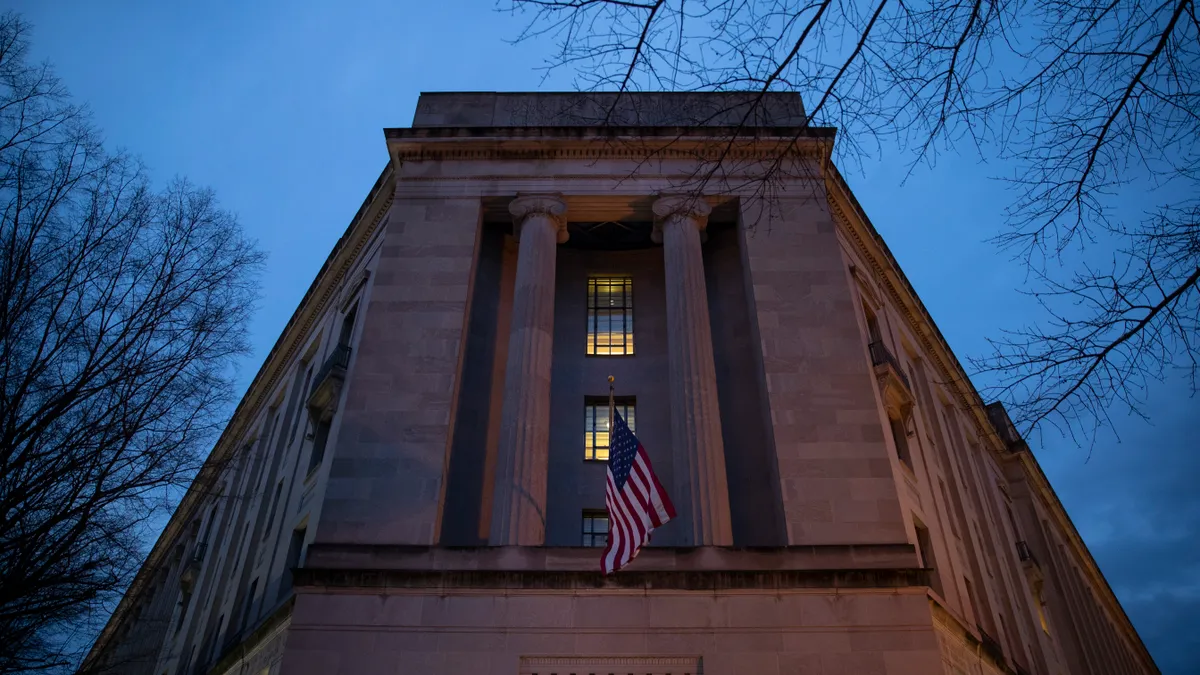A Connecticut federal judge acquitted six executives Friday in a U.S. Department of Justice lawsuit alleging that the defendants conspired in an illegal no-poach agreement.
The decision in U.S. v. Patel comes nearly two years after DOJ charged a former director of global engineering at Raytheon subsidiary Pratt & Whitney with participating in an agreement to restrict the hiring and recruiting of outsourced workers with the five other executives, who represented outsourcing companies.
This arrangement constituted a conspiracy to restrain trade in violation of the Sherman Antitrust Act, according to DOJ. The agency also alleged that the primary defendant “confronted and berated Suppliers who cheated on the agreement, often at the direct behest of another Supplier, and threatened to punish nonconforming Suppliers by taking away valuable access to projects.”
But District Judge Victor A. Bolden found that the alleged agreement did not constitute an allocation of the relevant employment market.
Even though emails between the parties suggested a blanket agreement not to hire certain employees, the agreement “allowed for exceptions that were regularly used even during periods of hiring ‘freezes,’ such as the exception that a supplier company could hire engineers and other skilled laborers if they separated from their prior employer,” Bolden said.
Hiring between the companies was also commonplace throughout the alleged agreement, Bolden added, “and therefore, it is not a market allocation agreement as a matter of law. Even if this is not the case, no reasonable juror could conclude that there was a ‘cessation of ‘meaningful competition’ in the allocated market.’”
The outcome is of interest to HR departments in part due to the fact that the Society for Human Resource Management previously filed an amicus brief in support of the defendants’ motion to dismiss. SHRM wrote that DOJ’s suit “signals a material and disquieting departure from the previous predictabilities in antitrust law relied on by HR professionals and instead seeks to apply the per se rule and criminal sanctions to a business collaboration between a company and its staffing partners.”
No-poach agreements have been an area of focus for the federal government in recent years. In 2016, DOJ and the Federal Trade Commission issued a joint notice to HR professionals warning that such agreements may violate antitrust laws if they constrain individual firm decision-making regarding wages, salaries, benefits, terms of employment or job opportunities.
DOJ enforcement has led to a few high-end convictions. Last year, a nursing services contractor pleaded guilty to conspiring with a competitor to allocate employees and fix their wages, and a federal judge ordered the contractor to pay $134,000 in fines and restitution.















